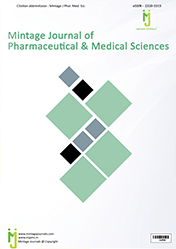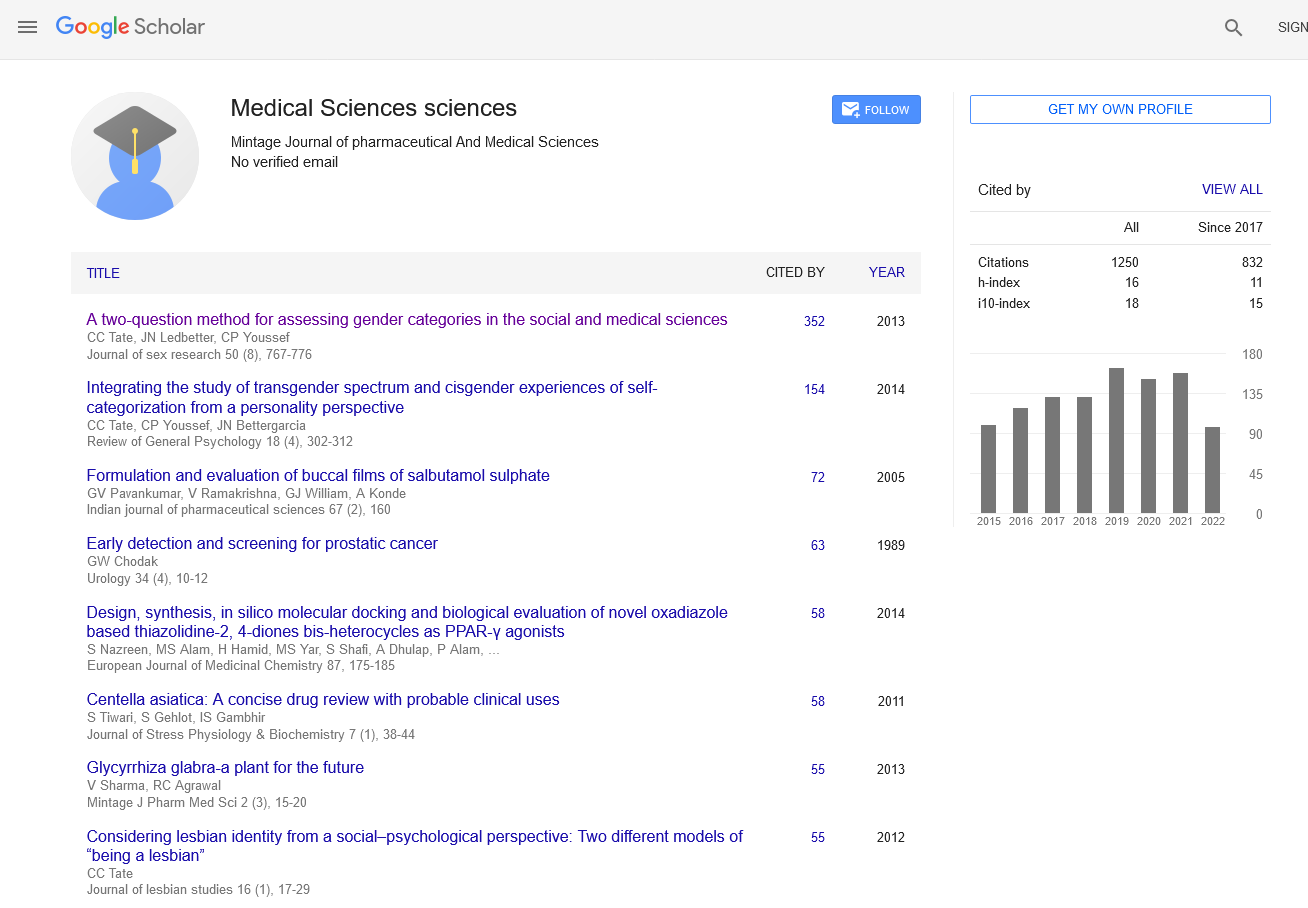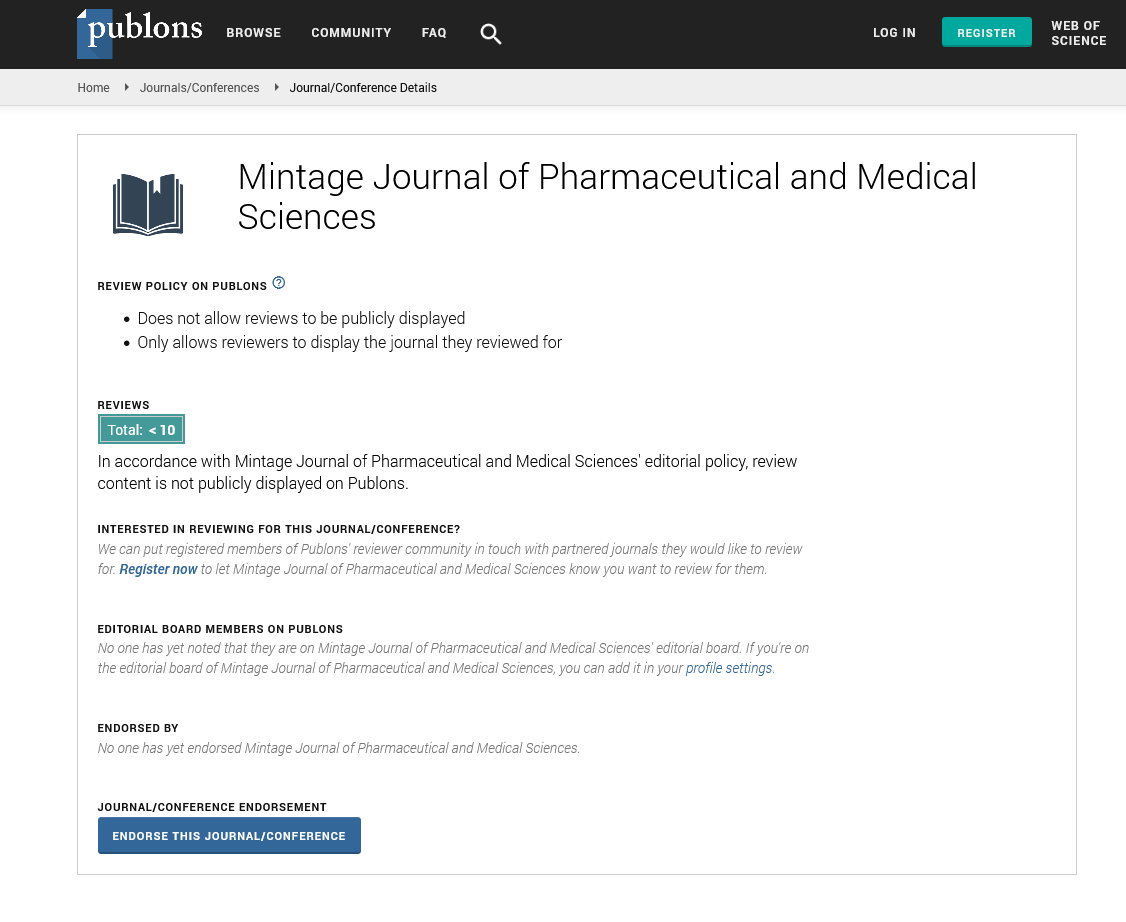Drug Toxicology: Understanding the Balance Between Efficacy and Harm
Commentary - (2024) Volume 13, Issue 3
Description
Drug toxicology is a vital field in medical science, dedicated to understanding the harmful effects of drugs and chemical substances on living organisms. It is an interdisciplinary science that combines principles from chemistry, biology, pharmacology, and medicine to assess the toxicity of substances and ensure the safety of pharmaceuticals. Toxicology, in general, focuses on the adverse effects of chemicals, while drug toxicology specifically concentrates on the risks posed by therapeutic agents, recreational drugs, and environmental toxins. The purpose of drug toxicology is to identify and quantify the harmful effects drugs can have on biological systems, as well as to determine safe dosage levels for human use. Drugs, whether developed for therapeutic purposes or consumed recreationally, have the potential to cause adverse effects when misused or administered incorrectly. Toxicologists play an essential role in drug development by studying the interaction between the drug and the body, as well as its potential to cause harm. This science is crucial for ensuring that new drugs are safe for human use before they are approved by regulatory agencies like the U.S. Food and Drug Administration (FDA) or the European Medicines Agency (EMA). The toxicological evaluation of drugs begins with preclinical testing, which is typically carried out on animal models. These studies help to identify any toxic effects that the drug might have on various organs and tissues and establish a dose-response relationship. A dose-response curve is a critical component of toxicological assessment, as it helps to determine the dose at which a drug becomes toxic. Toxicologists also analyze how a drug is metabolized in the body (pharmacokinetics) and how it interacts with biological targets (pharmacodynamics). This analysis helps scientists to understand the mechanisms by which drugs can cause harm, either by direct toxicity or through the production of harmful metabolites. One of the key challenges in drug toxicology is that different individuals can have vastly different responses to the same drug. Factors such as age, gender, genetics, pre-existing medical conditions, and lifestyle choices (e.g., alcohol or tobacco use) can influence how a drug is metabolized and how toxic effects manifest. For example, some individuals may metabolize a drug more slowly due to genetic variations in liver enzymes, leading to higher concentrations of the drug in the bloodstream and an increased risk of toxicity. In other cases, individuals with impaired kidney or liver function may not be able to eliminate the drug efficiently, resulting in toxic buildup. Drug toxicity can manifest in various forms, depending on the drug, the dose, and the individual’s physiology. Acute toxicity refers to the harmful effects that occur shortly after exposure to a drug, often within hours or days. Symptoms of acute toxicity may include nausea, vomiting, dizziness, or more severe effects like organ failure, seizures, or death. Chronic toxicity, on the other hand, results from long-term exposure to a drug at lower doses. Chronic toxicity can lead to conditions such as liver damage, kidney failure, cardiovascular problems, or even cancer. For example, chronic use of acetaminophen, a common overthe- counter pain reliever, can lead to liver damage, especially when combined with alcohol. Drug toxicology is also an essential component of forensic science, where it plays a crucial role in determining the cause of death in cases of drug overdose or poisoning. In forensic toxicology, scientists analyze biological samples such as blood, urine, or tissues to detect the presence and concentration of drugs or toxins. The data gathered can provide insights into whether the individual consumed a lethal dose, whether other substances were involved, and how the drug interacted with the person’s body. This information is vital in criminal investigations, medical examiner cases, and for ensuring justice in legal settings. In addition to evaluating the toxicity of drugs, toxicologists are also concerned with identifying potential interactions between drugs. Many individuals take multiple medications simultaneously, which can lead to harmful drug interactions. For example, combining certain prescription drugs with alcohol or recreational drugs can amplify their toxic effects, leading to dangerous outcomes. Toxicologists use various experimental methods, including in vitro (test tube) studies, in vivo (animal) models, and computational modeling, to predict how drugs might interact with one another and assess the risks of polypharmacy. In conclusion, drug toxicology is a critical science that ensures the safe use of pharmaceutical products by assessing their potential to cause harm. By studying the toxic effects of drugs, toxicologists help to protect public health and ensure that` medications are used safely and effectively.
Acknowledgement
The authors are very thankful and honoured to publish this article in the respective Journal and are also very great full to the reviewers for their positive response to this article publication.
Conflict Of Interest
We have no conflict of interests to disclose and the manuscript has been read and approved by all named authors.
Author Info
Callegari Ermal*Received: 02-Sep-2024, Manuscript No. mjpms-24-147869; , Pre QC No. mjpms-24-147869 (PQ); Editor assigned: 04-Sep-2924, Pre QC No. mjpms-24-147869 (PQ); Reviewed: 18-Sep-2024, QC No. mjpms-24-147869; Revised: 23-Sep-2024, Manuscript No. mjpms-24-147869 (R); Published: 30-Sep-2024, DOI: 10.4303/2320-3315/236022
Copyright: © This article is an open access article distributed under the terms and conditions of the Creative Commons Attribution (CC-BY) license (http://creativecommons.org/licenses/by/4.0/)

ISSN: 2320-3315
ICV :81.58

